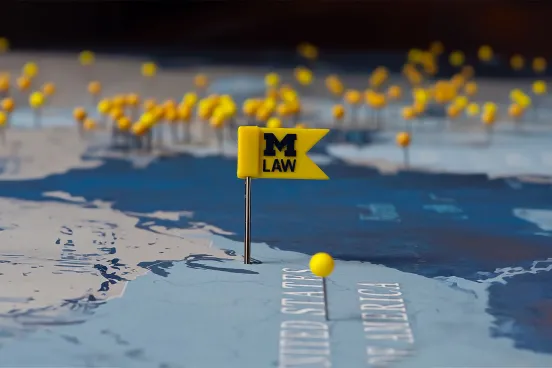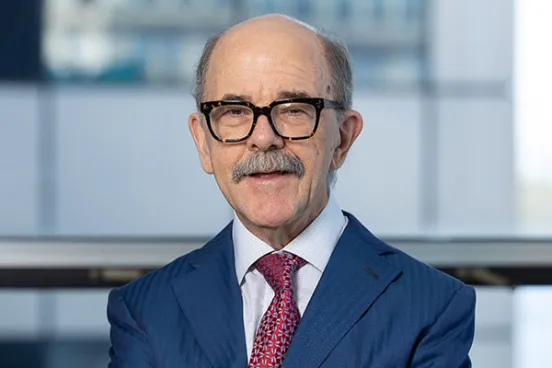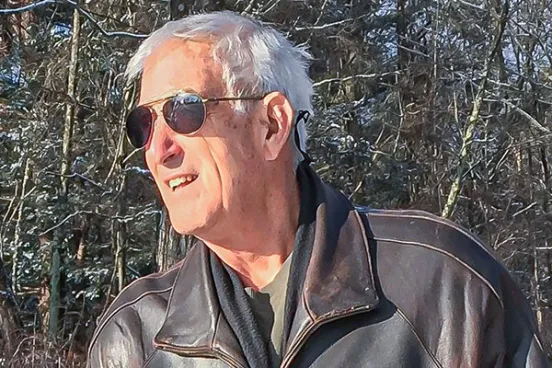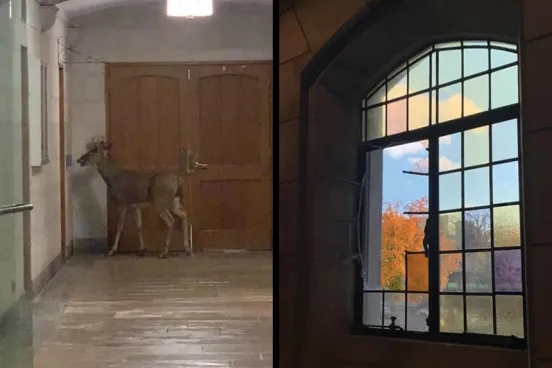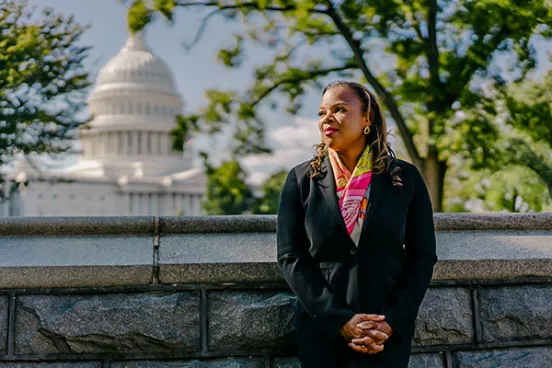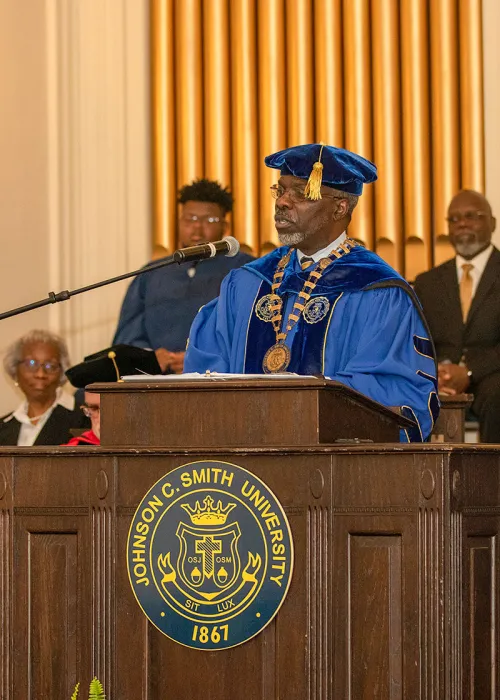
The early tenure of Clarence Armbrister, ’82, as president at Johnson C. Smith University (JCSU) was not for the faint of heart.
Two weeks before his term started on January 1, 2018, he learned that the school’s accrediting agency had placed it on probation for financial reasons. Then came a series of hurricanes later that year and the resulting environmental damage, which delayed the start of the following semester. Shortly after the school cleared those hurdles and Armbrister began overseeing a strategic planning process, COVID hit.
However, Armbrister met the challenges facing JCSU, which thrived under his leadership until his retirement in June 2023. Among those accomplishments was an $80 million fundraising campaign to support the strategic plan of the HBCU (historically Black college/university), located in Charlotte, North Carolina.
“We think that, if properly executed, the plan will put Johnson C. Smith on a trajectory that will make it a top HBCU.”
Clarence Armbrister, ’82“We think that, if properly executed, the plan will put Johnson C. Smith on a trajectory that will make it a top HBCU.”
The road to JCSU
Growing up in racially segregated Miami, Armbrister had firsthand knowledge of the value of HBCUs—his brothers attended Florida A&M University. And while he earned his undergraduate degree at the University of Pennsylvania, he is a strong advocate of HBCUs in general and JCSU in particular.
“The biggest value of HBCUs is this sense of belonging,” says the father of five children, two of whom attended HBCUs. “They are places of support that you just don't get anywhere else.”
As for JCSU, he counts its commencement ceremonies as the highlight of his tenure.
“There is nothing like watching the joy of students who have worked so hard,” he says. “Most of them are first-time college graduates, and it's not only changing the trajectory of the student, it's often changing the trajectory of their family's lives.”
He adds that nothing in his long, successful career compares to those ceremonies. “And I've had some great things happen to me professionally.”
Armbrister’s career started as a public finance lawyer for a Philadelphia firm. At the invitation of then-mayor Ed Rendell, he went to work as the Philadelphia city treasurer. His first foray into the world of education came when he took a position in the Philadelphia school district, where he saw his boss implement reforms intended to improve the lives of the city’s public school students.
“One of the principles I learned during that time was that, when you set expectations for students, they'll meet you wherever you set them. If you set them really high, they will meet you there. If you set them low, they'll meet you there, too.”
Clarence Armbrister, ’82“One of the principles I learned during that time was that, when you set expectations for students, they'll meet you wherever you set them. If you set them really high, they will meet you there. If you set them low, they'll meet you there, too.”
Following that job and a stint as an investment banker, Armbrister accepted a position as a chief administrator at Temple University, which was preparing for a transformation from a commuter school to a “vibrant urban campus.” This included building a new medical school and a new business school, and moving the suburban art school onto the main campus.
He was able to leverage the lessons he learned there and at Girard College, a Philadelphia boarding school for children of limited resources, to his advantage at JCSU, where he oversaw another transformation.
Down payment on a transformation
“When I got to Johnson C. Smith, one of the things that was quite apparent to me is that Charlotte didn’t know Johnson C. Smith very well. And, as a consequence, it really hadn't gotten the kind of support from the local institutions that I thought it deserved.”
Case in point, a few months after becoming JCSU president, he attended a meeting of civic leaders on how to expand the upward mobility of Charlotte’s marginalized communities.
“They had names flashing on a big screen of all the organizations working on this problem. And I sat there and waited to see Johnson C. Smith,” says Armbrister. “I looked over to one of my colleagues and said, ‘That's never going to happen again. We're never going to be in a room where, in this city, they're talking about upward mobility and Johnson C. Smith University is not even mentioned.”
Flash forward to November 2021, and JCSU was included as one of four pillars in the Mayor’s Racial Equity Initiative, which aimed to raise $80 million to support JCSU and position it as a top-tier HBCU. (Fundraising surpassed $80 million in August 2022.)
While the news for JCSU has been good, challenges still remain, including the need to get enrollment numbers back to pre-COVID levels. Many of these challenges are similar to those at other HBCUs, which often lack investments, funds, infrastructure, and other resources. However, Armbrister continues to speak of the value of these schools and JCSU.
JCSU’s successful fundraising campaign is a positive step, but is not the end, says Armbrister. “That is just a down payment on what we hope will start the transformation of the university.”


